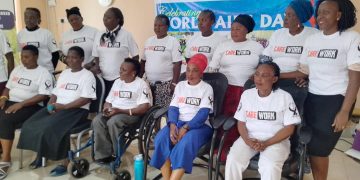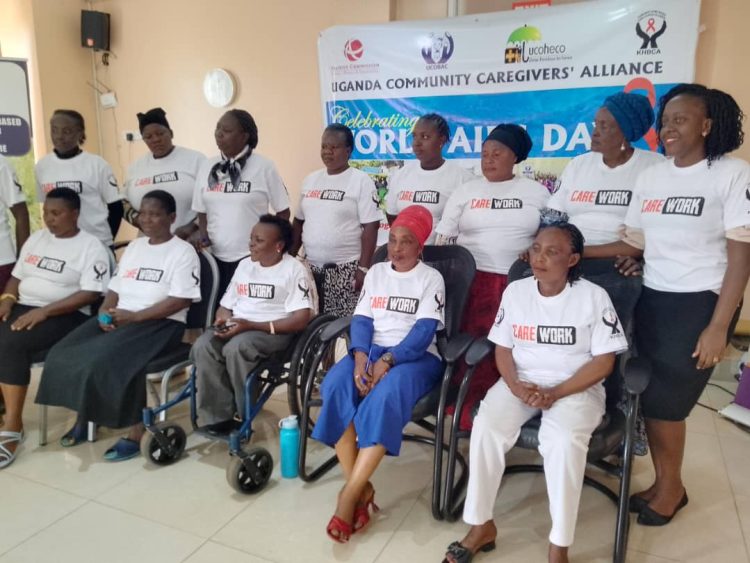By Leonard Kamugisha Akida,
KAMPALA
Persons providing care and support to individuals living with HIV/AIDS, Non-communicable Diseases and other chronic illnesses have asked the government of Uganda to develop a policy that supports family caregivers.
Members under their umbrella, Uganda Community Caregivers’ Alliance claim that their efforts are not recognized and appreciated despite the harsh environment they operate in.
A recent study by the Huairou Commission on ‘understanding the link between care work and social protection in Africa’ shows that at least 22% of Ugandans are in caregiving work, while 88% of females in 10 African countries are caregivers.
At a media engagement held today at Eureka Place Hotel, Ntinda, caregivers highlighted some of the challenges that they are facing as limited access to financial support, insufficient training and social stigma.
Maxensia Takirambule, HIV/AIDS activist, founder and Executive Director of Lungujja Community Health Caring Organisation (LUCOHECO) said there is an urgent need for legal framework to not only support caregivers in Uganda but also to regulate and guide their operations.
“A comprehensive national policy will ensure that caregivers are recognized, supported and provided with the resources they need to carry out their responsibilities effectively,” she said.
A recent study by the Huairou Commission on ‘understanding the link between care work and social protection in Africa’ shows that at least 22% of Ugandans are in caregiving work, while 88% of females in 10 African countries are caregivers. The study further revealed that 54% of caregivers in Africa engage in care work daily, with 75% in healthcare, 62% in HIV/AIDS and food provision, respectively.
Ritah Kemigisa, Advocacy and Communication Assistant at Uganda Community Based Association for Women and Children’s Welfare (UCOBAC) says that caregivers are at the heart of both HIV/AIDS care and the broader health and social support, calling for integration of their work into health policies and social frameworks at all levels.
“Let us commit today to support every caregiver, ensuring that all people especially those living with HIV, can live with dignity, health and respect,” said Kemigisa.
She challenged the government to invest in caregiving, care infrastructure and support caregivers with necessary resources and funds to allow them perform their duties effectively.
In addition, grassroot home based caregivers, Immaculate Kamolo and Agnes Baguma have highlighted health risks such as psychological trauma associated with their works and called for psychosocial support.
“Caregivers are at higher risk for mental health issues like depression, anxiety and burnout due to the constant emotional toll of caregiving. Social support through gifting, counseling, peer support groups, can provide caregivers with an outlet to speak about their struggles,” said Agnes Baguma. “Infact, if there’s anyone who can provide psychosocial support to me, I need this because I am battling a lot.”








































